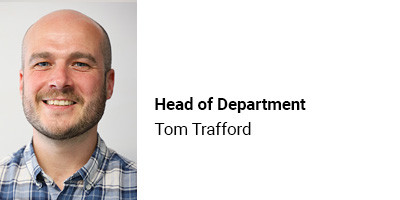Religious Studies A level
Qualification: GCE A Level in Religious Studies
Exam board & Specification Code: OCR; H573; Specification
Course Entry Requirements: 4 in English Language GCSE. We advise against studying Philosophy and RS together. If you wish to do so then we will discuss this with you during the application and enrolment process.
Please make sure that you have understood the overall entry requirements to study at BHASVIC. These are available here and outline the GCSE grades you need to take up one of the Study Programmes at the college.
Length and size of qualification: 2 year single course, equivalent to 1 A level
Timetable hours: 4.5 hours per week
Assessment method: 3 written exams
BHASVIC Department: Philosophy, Politics & Law

What will I study?
There are three elements to Religious Studies. The first is a study of religion. At BHASVIC we choose to study Buddhism because it has been the most popular option when students have been asked each year and because some schools look at Buddhism at GCSE. We will look at the foundations of Buddhist beliefs, history, different Buddhist groups and engagement with Buddhism in the wider world. This raises questions on identity, afterlife, our place in the world and how to live a good life. Secondly, we will look at philosophy of religion which looks at philosophical questions about God, the world, afterlife, evil and other areas. We will question the nature of God, whether God's existence can be proved and other philosophical questions about identity and existence. Finally, ethics looks at both religious and non-religious ways to work out what is moral and then applies these to different areas of life.
Is this course right for me?
If you are interested in debating and have an open mind then this course is right for you. We will study many different religious and non-religious approaches to ethics and aspects of our relationship with the world and evaluate these enabling you to come to your own conclusions about these areas. We delve into a much wider range of ethical and religious issues in religious studies than in the subject of philosophy but this means that there is a lot of content. It builds on the themes in Religious Studies GCSE but goes much deeper into these, focusing more on philosophy of religion and ethical theories rather than just a religious application.
Where next?
Studying Religious Studies increases and develops your critical thinking and challenges the way you look at your life. These qualities are valued by employers in approaching problems with new ways of thinking and creativity. It also shows you have thought and learnt about other cultures, values and belief systems to your own and reflected on these. Beyond this, the Religious Studies course develops your interpersonal skills and communication through the nature of philosophical discussions we will have. Religious Studies leads to many different university courses and career prospects. Many of these are in the service sector where the above skills become very useful when working with others. Such roles include teaching, social care, medicine, nursing, policing, aid work and more.
ApplyReligious Studies combines well with Philosophy which is a popular subject area for BHASVIC students to go onto study at university level.
It also combines well with other Liberal Arts subjects for a broad range of degree options. One of our students went onto study Theology, Religion, and Philosophy of Religion at Cambridge.
Should I study Religious Studies at degree level?
Is religion less relevant nowadays? Not necessarily, its role has just changed hugely. The impact of science and technology just means that religion is now more a varied and interesting subject than ever before. This is not a degree that will keep you in the lecture hall from nine to five. There's plenty of time for personal study, research and reflection – good for those who like independent learning.
Types of Religious Studies degree
You can choose to study single honours Religious Studies or a closely related subject, for example
- Classical and Theological Studies
- Theology and Film Studies
- Theology with a foreign language
- Theology
Modules Might include: Christianity and the Challenge of Modernity. Interpreting Islam, Philosophy for Theologians, Reading, Writing and Speaking Religion.
Entry Requirements
A-levels (or equivalent) usually required
For Theology & Religious Studies, you don't necessarily need an A Level (or equivalent) in a religion-related subject.
You might need one in an essay-based subject, such as History.
Top Universities for Theology & Religious Studies
Oxford, Cambridge, St Andrews, LSE, UCL, Durham
Lancaster, York, Essex, Kent – all very high student satisfaction scores
Birmingham, Sussex, Sheffield - all with top graduate prospects
Many of our students choose a combined degree - applications from our students have included:
- Law and Theology
- Philosophy and Theology
- Philosophy and Religion and Music
- Religions, Politics and Society
Example entry requirements:
A-Level/BTEC equivalents (please check):
Cardiff Religion & Theology B,B,B-B,B,C
Nottingham Theology & Religious Studies A,B,B
Lancaster Global Religions and International Relations (Placement Year) A,B,B
Why not try a foundation degree or higher apprenticeship?
Chester Theology & Religious Studies (Foundation) UCAS Points: 72-84
Some examples of Religious Studies-related degrees that our BHASVIC students have gone onto study in the past few years are:
- Comparative Religion and Social Anthropology
- Human, Social, and Political Sciences
- Philosophy and Theology
- Theology and Religion American
- Theology, Religion, and Philosophy of Religion
How BHASVIC helps: We have a wide range of information and resources to support students applying for university including subject area guides, personal statement and UCAS resources, super-curricular activity guides, open day and bursary information. We also cover university research, careers, art foundation and all other destinations in depth in tutorial and students can choose an appropriate pathway for them in the second year from UCAS, Employability & Enterprise, Visual Arts, Oxbridge and Medics. Our Spring Futures Fair brings in a huge number of university visitors with workshops and information stands and departments will bring speakers in wherever possible.
RS teaches you how to think for yourself and how to analyse and communicate ideas clearly and logically:
- Charity fundraiser
- Pastoral care
- Counsellor
- Ministry
- Civil Service administrator
- Local Government officer
- Community development worker
- Chaplaincy
- Mediator
- Teaching
- Police officer
- Youth worker
Career Prospects
Religious Studies students are highly employable. More than 82% go on to employment or further study, and 29% go onto professional jobs more than any other Humanities and Social Science subject except architecture and languages.
In particular, RS students work in the NHS; the civil service; youth and social work, advertising, investment and banking, law, politics, business, the creative industries, the charity sector and NGOs, publishing and journalism, and education. The fact is, the skills developed in studying religions are increasingly in demand in a complex, connected, global world. They help us to understand ourselves, our society, and the world.
Local Market Information
Civil Service Fast Stream
If you enjoy a challenge, want to make a difference and are eager to take on responsibility, consider joining the Civil Service Fast Stream. The Civil Service Fast Stream is an accelerated leadership development programme that provides talented graduates from a range of backgrounds with the experience, skills and knowledge needed to become senior leaders within the Civil Service. You'll gain a variety of experience through different placements or postings in government departments and agencies. may work in roles involving direct contact with the public.
Examples of apprenticeships and opportunities include:
- Internal Communications Manager
- Mediator
- Celebrant
How BHASVIC helps: We have an excellent Careers Hub and careers advisors who are available for appointments through student services. Local jobs are advertised and they will advise on skills and specialist areas such as degree apprenticeships. Students can choose an appropriate pathway for them in the second year from UCAS, Employability & Enterprise, Visual Arts, Oxbridge and Medics. Our Spring Futures Fair brings in a huge number of careers & apprenticeship visitors with workshops and information stands and departments will bring speakers in around the subject area.
You will gain many transferable skills studying Religious Studies that will be valued in the workplace including:
Critical thinking, reasoning, mental agility, communication and an appreciation of other people’s viewpoints, analyse arguments, develop creative solutions & write persuasively
Local Skills
The Local Skills agenda considers job prospects and employment in our local area of Sussex. Many of our students will contribute to the National Skills agenda and go onto find a career in a wide range of sectors. For students in Sussex our local skills are identified as the following sectors:
- Construction
- Creative & Cultural
- Digital (includes IT and Technology)
- Engineering & Manufacturing
- Healthcare (includes Bio Life Sciences and Pharmaceutical)
- Visitor & Hospitality
- Land-based (includes Agriculture and Viticulture)
- Green Skills
Degree choices that match the Creative & Cultural Local Skills agenda our BHASVIC students went onto study include:
- Comparative Religion and Social Anthropology
- Human, Social, and Political Sciences
- Philosophy and Theology
- Theology and Religion American
- Theology, Religion, and Philosophy of Religion
Career choices that match the Creative & Cultural Local Skills agenda our BHASVIC students went onto work in include:
- Ministry
- Teaching
- Celebrant
- Local Government
- A wide variety of youth and pastoral work
How BHASVIC helps: Skills Week in A1 helps students build skills in the workplace and a focus on developing skills through tutorial in A1 and A2 supports students in writing outstanding Personal Statements and CVs. We know our students have already gained a wide variety of skills at home and with extra-curricular activities and will increasingly take up jobs. Our focus is on supporting them to evidence skills already gained, identify gaps and ensure that they transfer that to CVs and applications. This is in partnership with every curriculum area.
